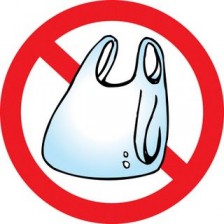Exec sees death of plastics industry due to ban

Peter Quintana, president of the Philippine Plastics Industries Association, told reporters that at least 112 local government units have passed ordinances banning the use of plastic bags in the retail trade and the number appears to be growing by the day.
“I see the death of the plastics industry if all the cities and municipalities will have an ordinance banning plastic as food container,” Quintana said.
He said the ban would eventually affect more than 600,000 industry workers.
Already, Quintana said, production volume has gone down by about 50 percent since 2010 because of the plastics ban. Prior to the plastics ban implemented in various places in the country, the industry was producing about 600,000 metric tons of plastic and polystyrene containers per year.
Many plastics manufacturing companies have cut working hours of their employees in a bid to keep them employed.
Article continues after this advertisement“About two to three working days are lost in the case of workers in a plastic factory with the ban on plastics,” he said.
Article continues after this advertisementQuintana said that while the situation was still bearable, he was afraid the time would eventually come when many companies would simply have to shut down.
“It’s not the product that is the problem but the attitude of people,” he said.
Quintana said that instead of banning the use of plastics, local governments should have adopted measures geared toward recycling.
Crispian Lao, a member of the National Solid Waste Management Commission, supported Quintana’s position.
“The plastics ban is ill-advised and offers no benefit to the people. It is just politically appealing. It is also bad actually for the environment because it results in more paper use, which requires the cutting of trees, and the use of more water and power for production,” he said.
Lao said what local governments should do would be to regulate the use of plastics as in Quezon City.
“The good thing about regulation like in Quezon City is that it may bring opportunities for the recycling sector even if there would be a negative effect on the plastic bag sub-sector. It’s better than an outright ban,” he said.
As for disposal of plastic wastes, Lao noted that technology was available to allow the recycling of plastics.